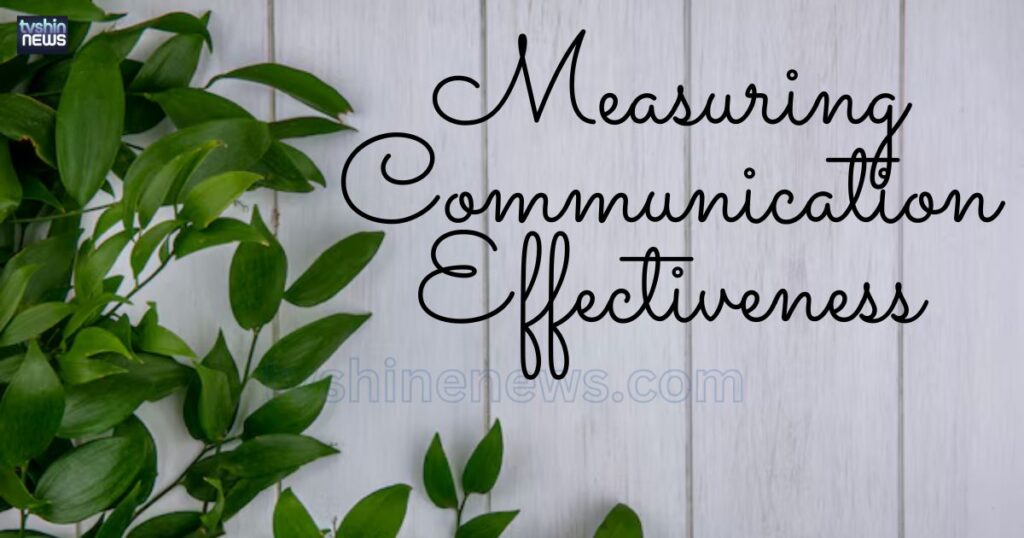In today’s fast-paced professional world, effective communication about important dates and events requires more than just the standard “mark your calendars” phrase.
Whether you’re planning formal events, coordinating meetings, or organizing social gatherings, having a diverse vocabulary for calendar management can significantly enhance your message’s impact and engagement.
Why You Need Synonyms for “Mark Your Calendars” in Written and Oral Communication
The way we communicate about scheduling and event planning has evolved significantly in our digital age. Using varied expressions for calendar management doesn’t just prevent repetition – it demonstrates professional sophistication and adapts to different contexts.
When coordinating with colleagues, clients, or friends, your choice of words can set the tone for the entire event.
Professional communicators understand that different situations call for different levels of formality. A corporate board meeting requires different language than a team lunch, and your scheduling phrases should reflect this understanding.
By mastering various ways to say “mark your calendars,” you’re better equipped to navigate these diverse scenarios effectively.
What To Say Instead of “Mark Your Calendars”
Before diving into specific alternatives, it’s important to understand how context shapes our choice of calendar phrases. The formality of the event, your relationship with the attendees, and the communication channel all influence which phrase will work best.
For instance, formal event invitations typically require more sophisticated language than casual reminders.
The key to successful event planning vocabulary lies in matching your phrase to your audience and purpose. A phrase that works perfectly for a wedding invitation might feel out of place in a quick email about a daily standup meeting. Understanding these nuances helps you communicate more effectively across different situations.
Mark Your Calendars: 15 Ways to Remember Important Dates

Let’s explore fifteen effective alternatives for “mark your calendars,” each with its unique tone and appropriate context.
1. Save the Date (Formal)
This classic phrase carries a weight of importance and formality that makes it perfect for significant events. Often used in formal event invitations, “save the date” implies that the upcoming event deserves priority in attendees’ schedules. It’s particularly effective for:
- Corporate annual meetings
- Wedding announcements
- Industry conferences
- Major fundraising events
For example: “Save the date for our annual shareholders’ meeting on September 15th, where we’ll unveil our five-year strategic plan.”
2. Circle the Date (Casual)
This more informal alternative creates a visual metaphor that makes your message memorable. It’s perfect for social gathering reminders and adds a touch of enthusiasm to your communication. The phrase works well in team settings and informal professional contexts.
For example: “Circle the date for our team’s summer barbecue – June 21st promises to be an afternoon of great food and better company!”
3. Note the Date (Neutral)
This versatile phrase strikes a perfect balance between formal and casual, making it suitable for various professional contexts. It’s direct, clear, and maintains a professional tone without being overly formal. The phrase works particularly well in:
- Internal team communications
- Client meetings
- Training sessions
- Project deadlines
4. Block Off This Day (Directive)
When you need to ensure attendance and communicate the event’s importance, this phrase effectively conveys the need to reserve the entire day. It’s particularly useful for corporate meeting reminders and full-day events.
For example: “Please block off this day for our annual strategic planning session – we’ll need your full attention and participation.”
The Psychology Behind Calendar Marking
Understanding the psychological aspects of how people manage their time and commitments can significantly improve your event communication strategy. Research in cognitive psychology shows that the way we phrase calendar invitations directly impacts how likely people are to remember and prioritize events.
When we use engaging and specific language in our calendar phrases, we tap into the brain’s natural tendency to better retain information that stands out from routine communications.
Our brains process and store temporal information differently depending on how it’s presented. Using varied and context-appropriate reminder phrases for events helps create stronger mental associations, making it more likely that participants will remember and attend your event.
This understanding can be particularly valuable when planning significant corporate gatherings or social functions where attendance is crucial.
Digital Tools and Modern Calendar Management
In today’s digital landscape, the way we handle important dates has evolved dramatically. While traditional paper calendars still have their place, digital calendar management tools have introduced new possibilities for effective event communication.
Understanding how to leverage these tools alongside appropriate scheduling language can significantly enhance your event planning success.
Modern calendar applications offer features like automatic reminders, recurring event settings, and integration with communication platforms. When combining these technological capabilities with well-crafted meeting announcements, you create a powerful system for ensuring event attendance and engagement.
The key is matching your calendar marking terminology to the digital tools you’re using, ensuring consistency across all communication channels.
Cultural Considerations in Calendar Communication

Different cultures approach time management and event planning in distinct ways. When working in multicultural environments, understanding these differences becomes crucial for effective event planning vocabulary.
What might be considered a polite reminder in one culture could be perceived as too pushy or too casual in another.
For instance, some cultures prefer more direct language when it comes to social invitations, while others appreciate a more nuanced approach.
Being aware of these cultural nuances helps you choose the most appropriate phrases for your audience, ensuring your message is received as intended and respected across cultural boundaries.
Strategic Timing of Calendar Announcements
The timing of when you ask people to mark their calendars can be just as important as how you phrase the request. Strategic timing of your announcements can significantly impact attendance rates and participant engagement.
Research shows that there’s an optimal window for sending initial announcements and follow-up reminders.
For major events, sending a “save the date” announcement 8-12 weeks in advance, followed by formal invitations and strategic reminders, typically yields the best results.
This approach to event prioritization gives attendees ample time to arrange their schedules while maintaining engagement through well-timed communication touchpoints.
Measuring Communication Effectiveness

To improve your calendar marking strategy, it’s essential to track how effectively your chosen phrases and approaches work. Monitoring response rates, attendance levels, and engagement can provide valuable insights into which scheduling phrases resonate best with your audience.
Consider implementing a system to track which phrases generate the highest response rates in different contexts. This data-driven approach to tailoring event announcements can help you refine your communication strategy over time, leading to better attendance rates and more successful events.
Remember that effective communication is an ongoing process of refinement and adaptation to your audience’s needs and preferences.
Frequently Asked Questions
What’s the most effective way to ensure people remember an event date?
The most effective approach combines clear communication with strategic timing. Send an initial announcement using appropriate calendar phrases, followed by well-timed reminders. Digital calendar invites paired with engaging descriptions typically yield the best results for event prioritization.
How far in advance should I ask people to mark their calendars?
For significant events, send initial “save the date” notices 8-12 weeks ahead. For regular business meetings or casual gatherings, 2-4 weeks notice is usually sufficient. Always consider your audience and event type when determining timing.
Can I use casual phrases in professional settings?
While maintaining professionalism is important, some casual scheduling phrases can work well in professional settings, depending on your company culture. The key is matching your language to your organizational context and relationship with attendees.
How often should I send reminders after the initial announcement?
For major events, plan three to four strategic reminders: an initial announcement, a midpoint reminder, and a final notice 48-72 hours before the event. This approach helps with remembering significant dates without overwhelming participants.
What’s the best format for calendar invitations?
The most effective invitations include clear date and time information, location details, and a brief but engaging description of the event’s purpose. When using digital tools, always include calendar integration options for easy date management.
Should I use different phrases for different time zones?
Yes, when coordinating across time zones, be explicit about timing and use phrases that clearly indicate the reference time zone. This clarity is especially important for corporate meeting reminders involving international participants.
How can I make my calendar marking requests stand out?
Use distinctive engagement phrases and specific language that highlights the event’s value to attendees. Avoid generic expressions and focus on communicating the unique aspects or benefits of your event.
What’s the best way to handle recurring events?
For recurring events, vary your reminder phrases for events to prevent notification fatigue. Combine digital calendar series with periodic fresh reminders that highlight any special agenda items or changes.
How should I phrase urgent or mandatory events?
For crucial events, use clear, direct language that emphasizes importance without creating unnecessary anxiety. Phrases like “Block Off This Day” or “Priority Meeting” can effectively communicate urgency while maintaining professionalism.
What’s the most professional way to handle date changes?
When rescheduling, acknowledge the change clearly and provide the new date prominently using formal scheduling phrases. Always express appreciation for flexibility and provide clear reasoning for the change when appropriate.
Conclusion
Mastering various ways to say “mark your calendars” enhances your professional communication toolkit. Whether you’re sending formal event invitations or casual reminders, choosing the right phrase helps ensure your message resonates with your audience and achieves its intended impact.
Remember that effective date management tips go beyond just choosing the right phrase – they involve understanding your audience, context, and communication goals. By varying your language and matching it to your situation, you’ll improve your professional communications and event planning success.
Finally, consider that tailoring event announcements to your specific audience and purpose often makes the difference between good and great communication. Use these alternatives thoughtfully, and you’ll find your written and oral communication becoming more effective and engaging.








